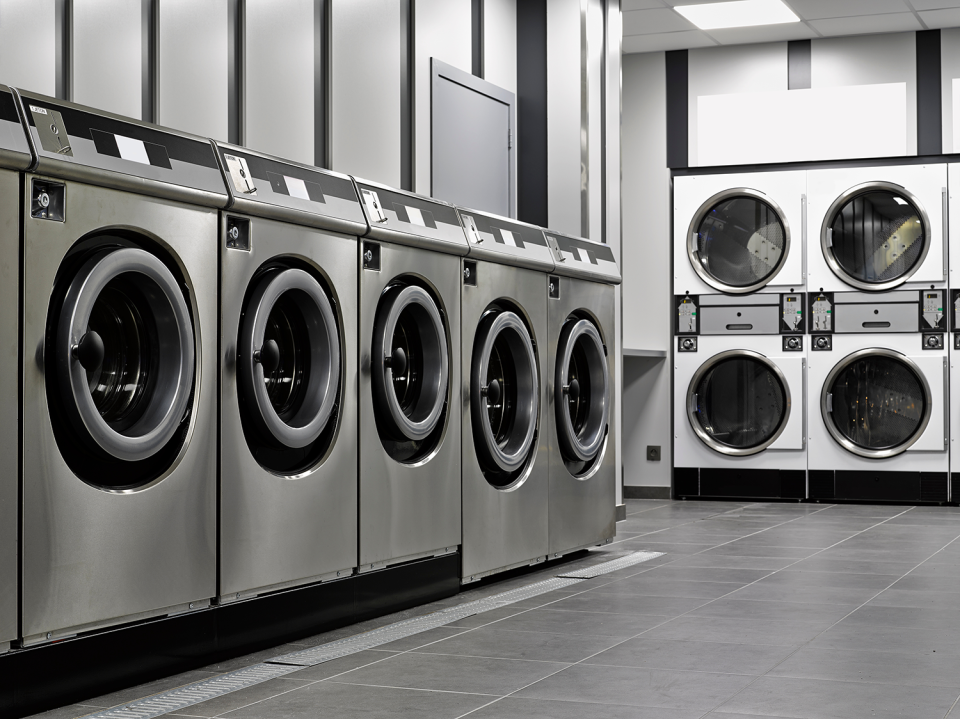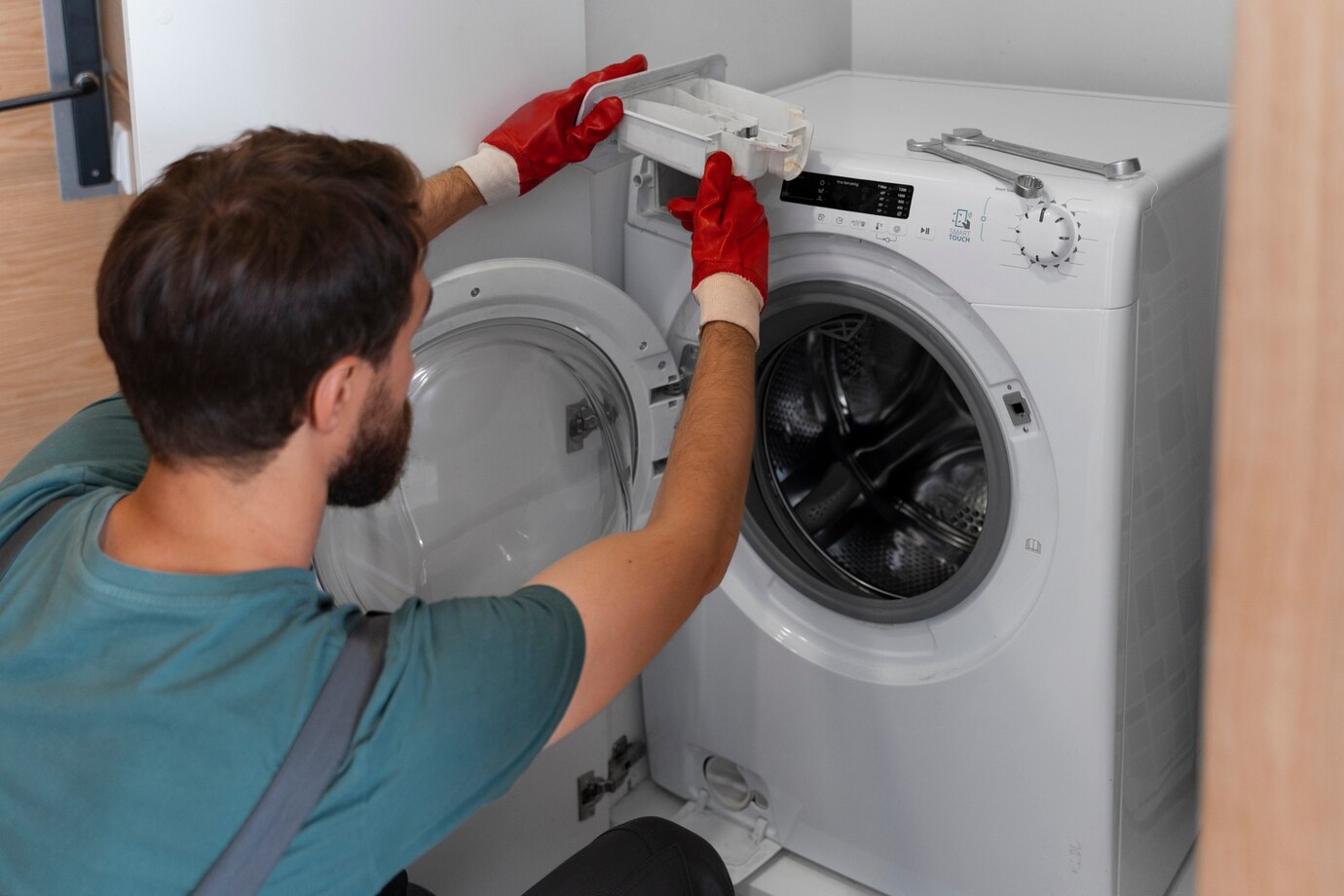When the time comes to choose a new appliance, it’s common to feel overwhelmed. Especially if it’s been a while since you’ve even glanced at the newest items on the market! Don’t let the variety of options weigh you down. More importantly, don’t let all that laundry pile up and take over your hamper, bed, chair, and floors. Read through this guide to figure out which is best for you (and just in general) – top-load washers or front load. Does a top-load washer use more water than a front load? Does one clean better than the other? Which type of washer is easier to repair and which one requires more maintenance? Let’s find some answers so you can get your new appliance, have us help install it, and get back to normal ASAP!
Water Usage Comparison
One of your top questions when searching for a new washing machine is likely, “which one is going to be the most efficient with the least amount of water?” And honestly, that’s a quite valid question. There is a difference! While all washing machines today are made to use less water than those made 2 decades ago, it’s common to see that top-load agitator washers will typically use more water than front load washers or high-efficiency (HE) washers. On average, a front load washing machine will use around 8 gallons of water. A top load washer with an agitator can use around 5 times as much!
If you have a top-load washing machine or are considering getting one soon, don’t let this deter you. If you want to save on your water usage while doing laundry, be sure that you are running the washer with a full load of clothes (but not overfilling the machine). Besides this concern, there are many other factors to consider with front load and top-load washers. With the water usage difference, which type of washing machine cleans your laundry the best?
How Well These Machines Clean
A top-load washer with an agitator uses a ‘rougher’ approach to cleaning your linens than a front load washer does. The agitator in the top-load machine spins or twists against your laundry to create friction, remove stains, and break down soils. This explains why that type of washer has to use more water and why a full load is the most efficient. The water has to reach all of the clothes and it’s almost a waste to only wash something that only surrounds 1/4th of the agitator!
As mentioned previously, front load washers use less water. In turn, you won’t have to use as much detergent. Does this mean that your clothes won’t come out as clean? Well, not necessarily. Front load washers use a tumble technique, similar to your dryer, using friction between each item inside to remove dirt, stains, and more. This more gentle approach can lead to longer wash times depending on what setting you choose. However, there should not be a noticeable difference in how well a front load washer cleans your laundry vs a top-loader.
Honestly, one of the biggest differences here is that a front load washer is better for smaller loads of laundry.
Other Pros & Cons to Consider
If you’re in need of a new washing machine and still struggling which style to pick, consider narrowing your options down based on the information below.
Aesthetics
Take a look around your laundry room. How much space do you have? If you don’t have much space (especially those in apartments or townhomes) you may want to consider stackable front load appliances. This can not only allow you to take advantage of more vertical space, but may open your eyes (or close them, who knows?) to different design options, colors, and models.
If you still have the ability to go with either type of washer, consider the location of the controls as well as the size of the washer that you are choosing. Top load washers typically have a console featuring the various controls, settings, etc., while front load washers have the controls at the front of the appliance, right above the door. Depending on the height of whoever does the laundry in your home, these can be important factors to consider!
Overall Experience
Based on experiments done by Consumer Reports in one of the articles linked above, their experimentation team discovered that more often than not, a top-load agitator washer is going to be more noisy. It isn’t noise that will likely disrupt your daily life, but the water, agitation, and spin cycles can definitely be heard if your washer is near your bedroom or workspace, for example. That being said, though, front loaders are known to vibrate during their spin cycles as well. Although, this shouldn’t be much of a problem if you aren’t near the washer or if you do not have a wooden floor.
Lastly, front load washers are known to require extra care. One main issue that many front load washer owners deal with is mold around the dispensers and rubber gasket around the door. You can combat this issue by keeping the gasket dry and running the tub-clean feature on a regular basis, if your washer has that spec.
We Do Installations!
We could go on and on about appliances all day! But you need to get a functional washing machine and attack that ever growing pile of laundry ASAP. While Premier Appliance of Augusta does not sell appliances, we can come fix yours or help you install something new! Don’t get stuck searching the internet for “washing machine repair near me,” or “how can I fix my washing machine by myself.” Give us a call today at (706) 941-2090 and let us help take some stress off your shoulders. Whether it be with your residential laundry appliances, kitchen appliances, or outdoor appliances, we are here to serve the Augusta, Georgia community with pride.


